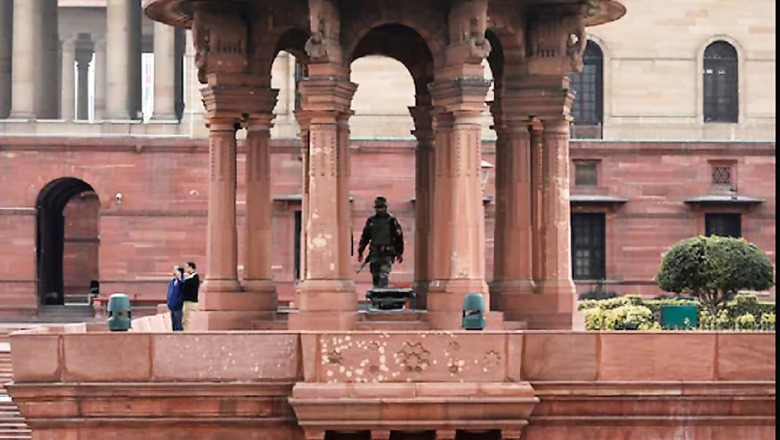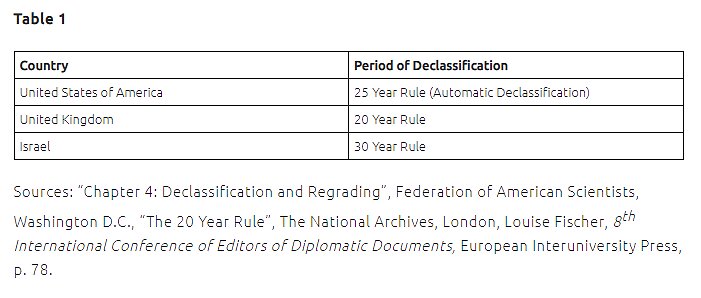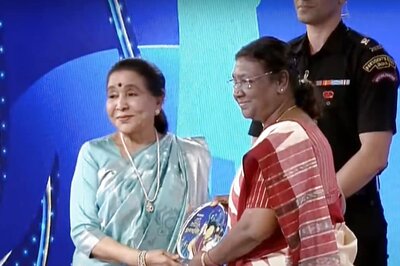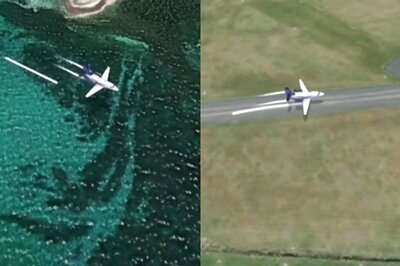
views
Defence Minister Rajnath Singh’s announcement that war records will be archived and declassified after every 25 years is, indeed, a welcome move. According to the latest announcement, responsibility for declassifying records will be with the Ministry of Defence (MoD) History Division. The earlier policy was clearly inadequate. Despite previous efforts to declassify material recommended by committees such as the N.N. Vohra Committee Report and the Kargil Review Committee Report led by K. Subrahmanyam, there was no progress.
There are several reasons to welcome this move by the Modi government. The proclivity to politicise military and national security challenges has been a bane for India. Further, previous governments were wary and resistant to declassification because of its ostensibly adverse impact on national security. National security has been used as a frequent canard and tended to be the leitmotif to prevent a coherent declassification policy. The contention that India still faces active disputes with China and Pakistan, which are yet to be resolved and, therefore, secrecy should govern classification has also stymied openness.
Declassification will enable a more objective assessment of post-Independence India’s military history, helping policymakers make more informed decisions on policies relating to the country’s military security. A more liberalised declassification system will also help the de-politicisation of military events, especially wars India has fought. Several democratic countries have adopted and currently pursue automatic declassification of official records as the table 1 below shows, although they vary.

Before the latest announcement, which still needs to crystallise into actual change, official war histories were commissioned in India, which was the only way of ascertaining what exactly transpired. All the wars since 1947 have official histories or something that comes close to official accounts such as the Kargil Review Committee Report, which are publicly available. The 1962 Sino-India boundary war too has an official history, but remains the lone exception to declassification. The Henderson Brooks Report, which investigated the debacle of the 1962 war, is yet to be declassified; although the first part is available online, released by the Australian author and journalist Neville Maxwell, who published a controversial revisionist analysis on the conflict. Further, Indian official military histories have generally been operational histories.
Beyond official histories, other publicly available sources have included first person accounts and memoirs. Oral history testimonies have also played some part in filling gaps in the public’s understanding of past conflicts. However, these sources of information remain inadequate. Further, official histories, while generally based on classified sources, although objective, are dry assessments, making them insufficient to get to a fuller understanding of what exactly occurred and how a conflict started and unfolded.
The 1947-48, 1965 and 1971 wars against Pakistan and the Sino-Indian war of 1962 have official histories, but they lack any independent historical and rigorous analysis. In addition, the way to understand decisions made in the run-up to and during a conflict can only be gained through a clear declassification of documents, notes and communiques between officials and decision-makers. Consequently, the public is all the more enriched with diverse historical interpretations of the conflicts in which India has been involved.
While history does not teach lessons generally and, more specifically, military history does not teach the public or policy-makers lessons, it can at best provide critical illuminative value. It will give Indians a sense of why they are where they are in terms of the state of India’s relations with China and Pakistan and what went right and wrong in India’s conflicts with these two countries.
Beyond Archival Research
However, beyond declassification of material for archival research, there are other merits to the declassification announcement. Let us consider military reforms in India’s higher defence management and organisation. Any historian and scholar would want to know the internal deliberations that occurred within and between the services before the last 25 years on defence reforms. To be sure, the importance of higher defence reforms may seem obvious today because there are ongoing visible and public debates on the subject. However, declassified archival sources are the surest way to understand why defence reforms are stillborn or missing, by revealing the pressures, the constraints, the lack of leadership, foresight and risk-aversion that have stymied change.
Interviews by scholars of retired military officials or key bureaucratic officials can only partially redress our gaps in understanding why higher defence remains impaired, despite the Modi government’s decision to establish the Chief of Defence Staff (CDS) post. Indeed, declassification will enable scholarly study on higher defence organisation, defence procurement, military intelligence studies, recruitment standards and priorities of the armed services, military personnel issues, training and so on. Archival material will enable a more credible, richer and more rigorous scholarly analysis in these areas.
Generally, all the wars fought since Indian independence in 1947 to the present day have largely been written by historians or experts who, at one point or another, served in the Indian armed services. While their contributions are important and substantial, their advantages with access to a whole range of former military officials and in some cases serving military personnel are a critical reason for their publication on matters relating to the military.
The study and writing of military history in a democratic society cannot be the exclusive monopoly and preserve of experts who have served in the armed forces or for that matter serving officers from the uniformed services. Civilian scholars who have had no military experience must engage with all issues surrounding the three services and India’s wars. There are a whole range of notable historians without any military backgrounds outside India who have made significant contributions to military history such as John Keegan, Lawrence Freedman and Richard Overy, to name a few; and there is no reason why Indians cannot emulate them.
Military service is not a pre-requisite for studying military history. More than serving or former officers, it is civilians who must shed their inhibitions when it comes to scholarship on military history and military-related subjects. With the government now deciding to pursue a declassification policy, civilian scholars will have access to declassified military-related material. Consequently, their contributions to the field will be for the better and hopefully Indian academic institutions will be able to give military history its due.
Yet many challenges remain, the most significant one being the need to spell out clearly what kinds of products could come out of this initiative and how the structures and processes to manage this would be organised. A new post of DG Armed Forces History will become an imperative. A Joint Secretary may not be well positioned to lead this initiative and committees will only lead to dead ends. Histories must be professionally commissioned, steered and edited till such time as the Indian armed forces have the in-house ability to research and write with authority.
The government has made a good start, but it should not stop here as much work is needed to shift from India’s archaic system of declassification to one which is in sync with the requirements of contemporary times.
This article was first published on ORF.
Read all the Latest News, Breaking News and Coronavirus News here.




















Comments
0 comment